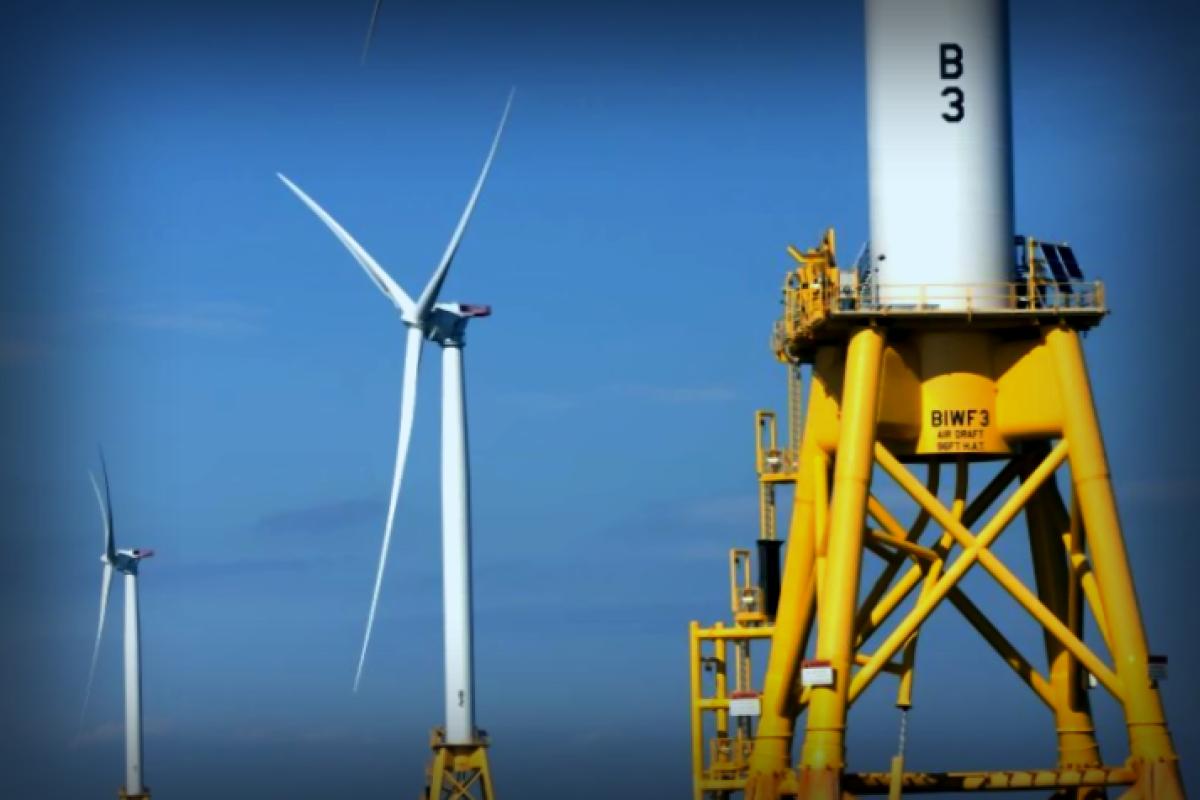On Friday, the Trump administration announced a significant halt to a wind energy project off the coast of Rhode Island, planned to provide electricity for around 350,000 households.
The Bureau of Ocean Energy Management (BOEM) conveyed its decision in a letter to Ørsted, the Danish firm behind the project. It stated that the suspension aims to tackle “concerns about national security and to ensure there’s no interference with legitimate uses of the exclusive economic zone, high seas, and territorial seas.”
According to the letter, Ørsted cannot continue any work on the project until BOEM completes its review.
The Revolution Wind Project, valued at $1.5 billion and about 80% finished, was previously approved during Biden’s presidency and is expected to be concluded by 2026. Ørsted claims it has obtained all necessary federal and state permits.
This latest operation by the Trump administration is part of a broader trend of pulling back on renewable energy initiatives. Recently, Congress passed the One Big Beautiful Bill, significantly reducing the incentives for renewable energy established in Biden’s Inflation Reduction Act.
Moreover, last month the Interior Department revealed that it would be increasing scrutiny on both wind and solar projects, aiming to evaluate considerations related to grants, environmental impacts, and land leases.
This week also marked the beginning of a national security review regarding wind turbine imports. The reason these imports are raising national security alarms isn’t fully explained, yet the administration has sought public input on the effects of foreign government subsidies.
Ørsted has stated, “We’re investing in American energy production, upgrading the grid, enhancing port infrastructure, and developing a supply chain that includes U.S. shipbuilding and manufacturing that spans more than 40 states.”
Additionally, Ørsted emphasized that the Revolution Wind Project has already provided jobs for hundreds of local union workers supporting construction both onshore and offshore, with the project collectively accounting for about 4 million union labor hours so far, out of which 2 million are for Revolution Wind.
Initially greenlit in 2023, the Revolution Wind Project entails a 20-year power purchase agreement, which could have ultimately supplied energy to numerous households in Rhode Island and Connecticut. Back in May, Connecticut’s Attorney General William Tong, along with 17 fellow AGs, initiated a lawsuit against the administration concerning its efforts to restrict wind energy projects.
In response to the restrictions, Ørsted is currently reviewing the potential financial impact, weighing various possibilities that include possible legal actions.
The Interior Department has yet to provide comments regarding the situation.
Additionally, Ørsted is backing another Rhode Island project known as South Fork, which gained approval in 2021 and forms part of the Biden administration’s strategy toward a clean energy era.
The abrupt suspension of the Revolution Wind Project marks the third such instance for the Trump administration this year. Earlier in August, the Interior Department annulled Biden’s approval for the Lava Ridge Wind Project in Idaho, which was expected to deliver power to 500,000 homes.
Reflecting on these initiatives, Interior Secretary Doug Burgum noted in an early August press release, “Massive, inconsistent energy initiatives hamper America from achieving true energy independence while placing substantial burdens on taxpayers and the environment.”
In April, another project, the Empire 1 Wind, was also halted off the Long Island coast.
Copyright 2025 Nexstar Media, Inc. All rights reserved. This material may not be published, broadcast, rewritten, or redistributed.


















